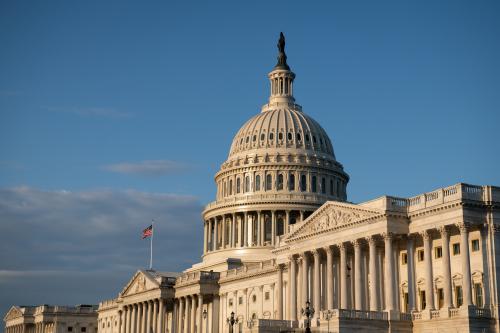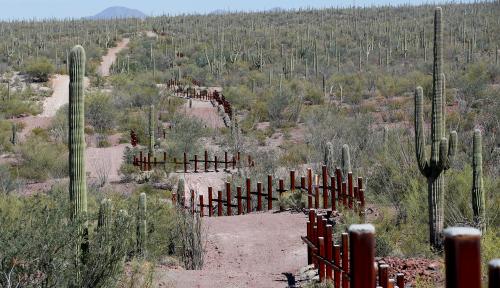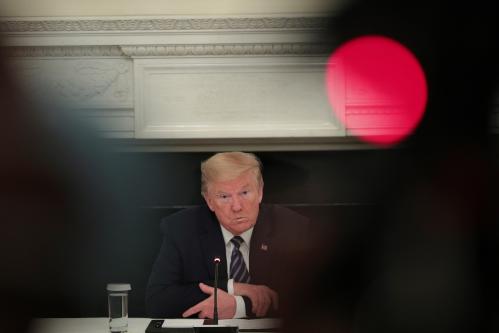Even as the coronavirus surges, the end to our long national nightmare is in sight. Several effective vaccines will soon become available and Donald Trump’s deceptive, chaotic presidency will soon end. The Biden administration will have no choice but to hit the ground running, as they are clearly preparing to do. But beyond the immediate response it will be important to ask ourselves: what have we learned and what should we do in the future?
As a first step, the Biden administration and the Congress should create a bi-partisan commission to look at our nation’s response to the pandemic. The Commission should be adequately funded, with a professional staff, a bi-partisan membership of experienced government leaders, and subpoena power.
Some answers to the question of what went wrong are simple and don’t require a commission. Unlike President Trump, future leaders should listen to the science, they should not lie to the public, and they should not turn public health guidance into political statements. But other answers to the question of what went wrong should get at the operation of federal, state and local governments. This analysis requires more thought and expertise. For instance:
- How should we prepare for high-intensity, low-probability events?
- Do the institutions of the federal government have the capacity and the agility they need to confront the unexpected “black swan” events that seem to be increasingly prevalent in the 21st century?[1]
- Do state and local governments have the leadership, capacity, and the ties to the federal government to respond appropriately?
- Does civil society, especially the press, understand the critical role they play in times of extreme crisis?
There are recent precedents for commissions that investigate national crises. At the beginning of the 21st century—September 11, 2001 to be exact—we suffered an unprecedented surprise attack on our homeland. In late 2002 President George W. Bush signed into law the creation of “The National Commission on Terrorist Attacks on the United States,” also known as the 9/11 Commission. The ten-member Commission issued its report in 2004. It shed light on the information-sharing problems that existed in the sixteen agencies that composed the intelligence community and the difficulty that posed in “connecting the dots” that may have warned us of the attack. The creation of the Office of the Director of National Intelligence and other innovations in intelligence sharing came from the work of that Commission.
A few years after 9/11 a Category 5 hurricane hit New Orleans. The government response (at all levels) was as horrific as the hurricane itself and exposed fundamental flaws in emergency response. The Senate created “The Select Bipartisan Committee to Investigate the Preparation for and Response to Hurricane Katrina,” which delivered its report to Congress a few months later. The report highlighted the inadequacy of emergency response statutes and lack of preparation for emergencies where local first responders were themselves victims of the emergency.[2] It led to reforms encompassed in the “Post-Katrina Emergency Reform Act,” which President Bush signed into law October 4, 2006.
Following the collapse of the mortgage market and the great recession of 2007-2010, Congress created the “Financial Crisis Inquiry Commission” in May of 2009. Chaired by Phil Angelides, former Treasurer of California, the Commission held a series of high-profile hearings exploring the causes of the economic meltdown. It delivered its report in January 2011, pinpointing the primary culprits in the mortgage meltdown and the systemic risk-taking that characterized major financial institutions like Fannie Mae. It operated alongside creation of the Dodd-Frank legislation on financial reform.
A commission investigating the pandemic should look at the entire operation. For instance, it should start with the health-related agencies of the federal government and how to improve their intergovernmental coordination and capacity. It should look at what happens to front-line workers in a pandemic when they, like the police and first responders in New Orleans during Hurricane Katrina, become victims. It should look at how to modernize laws like the Defense Production Act in order to make sure that medical supplies can be produced in time for mass testing and vaccination. And it should evaluate the massive efforts to distribute everything from PPE to the vaccine itself.
Once Trump is no longer president it will be tempting to blame the poor pandemic response solely on him. And while his leadership has been erratic, self-serving and downright dangerous, national crises deserve an evaluation that goes beyond one man or woman’s actions. After all, the federal government is bigger than one person and in this crisis institutions varied in their ability and preparedness to respond.
The need for this kind of commission will be especially important in the coming years because of climate change. As we have already seen, climate change is going to make natural disasters more frequent and more deadly. Climate change is also impacting ecology in myriad ways: making animals extinct, food less healthy, and new diseases more common and more deadly. In other words, for all the progress we’ve made, we have some tough times ahead. A commission to examine how we dealt with the coronavirus and how we should prepare for other “black swan” events should be a modest first step towards preparing us for the chaos to come.
[1] A “black swan” event is a major event that is rare and comes as a surprise and entails significant societal impact.
[2] See Elaine C. Kamarck, “When First Responders are Victims.”
The Brookings Institution is committed to quality, independence, and impact.
We are supported by a diverse array of funders. In line with our values and policies, each Brookings publication represents the sole views of its author(s).








Commentary
America needs a COVID-19 Commission
December 1, 2020